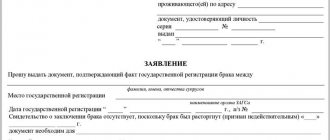Grounds for inventory of property
The forced collection procedure and procedure are regulated by Federal Law No. 229 of October 2, 2007 “On Enforcement Proceedings,” which was amended and entered into force on January 1, 2018. According to this law, the debtor has the right to organize an auction for the sale of property independently, if the total the amount of the penalty is less than 30,000 rubles. Also, a citizen can sell it in another way, without resorting to public auction.
If the total amount of the borrower's debt exceeds 30 thousand rubles, then the sale of the defaulter's property is carried out by the FSSP. This can also be done by the creditor bank, on the basis of a writ of execution issued by the authorized body.
The bailiff service has a period of 10 working days from the date of receipt of the acceptance certificate to post information about the confiscation on the website and in other sources.
Trading during the quarantine period is in a high-risk area
The restrictive measures introduced in March-April 2021 aimed at preventing the spread of coronavirus infection resulted in significant difficulties in the administration of justice and bankruptcy procedures, incl. and bidding.
The introduction of a regime of self-isolation, restrictions on movement, as well as on the activities of a significant number of companies will not only affect the efficiency of trading procedures carried out during this period, but may also entail a violation of the rights of both bidders and the debtor and his creditors due to limited access for interested parties to inspect the property and participate in auctions.
Articles on the topic (click to view)
- Criminal Lawyer
- How to pay your internet or TTK TV bill without commission?
- Conditions for bankruptcy of individuals
- Article 1484. Civil Code of the Russian Federation. Exclusive right to a trademark
- Sale of apartments at bankruptcy auctions in St. Petersburg
- Trademark cost calculator How much does it cost to register a trademark:
- Who can begin bankruptcy proceedings for a legal entity, what stages does bankruptcy include, and how long do such stages last?
A number of other difficulties also arise, for example, the problem of meeting the deadlines for publishing messages about tenders. The corresponding notification must be made at least 25 working days before the auction, however, changing the status of part of the March and April days to “non-working” (despite the fact that the corresponding term was previously absent in Russian legislation) may lead to the postponement of the auction or challenging the procedures, carried out without taking these factors into account.
Making a decision by the court
If there is a shortfall in payments, the collector has the right to file a statement of claim with a property claim against the debtor if pre-trial measures have not brought the desired result. The procedure for submitting and considering an application is as follows:
- When a debt is discovered, the creditor makes attempts to independently influence and negotiate with the defaulter. If these measures bear fruit, then there is no need to go to court.
- A statement is drawn up with a demand to carry out forced collection of funds. It is accompanied by confirmation of the existence of the debt, a calculation of the exact amount and evidence of attempts on the part of the plaintiff to resolve the issue peacefully.
- The court reviews the received document and makes its decision. A writ of execution is drawn up, on the basis of which the creditor can independently demand repayment of the debt or transfer it to the FSSP, if it is not possible to do this personally.
The debtor may lose his property if the debt is not paid for a long time and there are no other means to repay it
. If the funds are not enough, then the debtor’s property is used:
- apartment, house, cottage and other real estate;
- car or other transport;
- household appliances and furniture that are not essential items;
- retail or office premises owned by an individual or legal entity, etc.
However, not all property is subject to confiscation. The category of things that, according to the official legislation of the Russian Federation, cannot be seized include:
- personal hygiene products, clothing, shoes and other personal items;
- equipment used for earning money (tools, machines, etc.);
- the only accommodation if no alternative is provided;
- motor transport or other means of transportation intended for a disabled person;
- food products in an amount not exceeding the subsistence level, etc.
If the property is collateral, then the bank has the right to take it and put it up for sale, without going to court. If the defaulter has objections, the matter is resolved through the court, where all the circumstances will be clarified and a fair decision will be made.
What can't be put under the hammer?
Not all material assets in the possession and disposal of an individual can be included in the bankruptcy estate.
The following are not subject to sale:
- Food;
- any property used by the debtor in the prof. activities (for example, a car in which a citizen is engaged in private transportation);
- land plot;
- single dwelling;
- pet food;
- seeds;
- prizes and awards.
The listed property is not subject to seizure and subsequent sale.
Many debtors are frightened by the prospect of being left without their own home. According to the law, the only housing is not subject to alienation.
If the debtor owns several residential premises, in this case the residential premises may be confiscated for debts. Proceeds from the sale will be used to pay off existing debt.
A common question is whether an apartment purchased on credit can be taken out on a mortgage. The mortgaged apartment is also put up for auction. In this case, the credit institution receives its money, but if there are funds left after settlement, the debtor will receive the remaining difference.
Forced sale of the defaulter's property
After receiving a writ of execution, the debtor's property can be seized. A representative of an authorized government agency produces:
- assessment and inventory of the defendant's valuables;
- seizure of his bank accounts;
- fulfillment of all points of the court decision;
- collection of the entire amount of debt, etc.
The decision to seize and sell property is made by the court
The sale of seized property by bailiffs is carried out at auction, in which anyone with Russian citizenship can participate. After the appraisal examination, the item is assigned a starting price, from which open or closed purchase offers begin.
When purchasing goods that are put up for auction, you need to be extremely careful. Check that the items are not encumbered with any payments (fines, tax debts, etc.), and that the property owner does not challenge the decision to seize it in court and invalidate it.
Recommendations
If you are interested in purchasing property at auction in bankruptcy proceedings, it is necessary to pay increased attention to checking the compliance of the terms of the auction with current legislation, incl. timeliness and completeness of publication of information about auctions and the composition of the property being sold, accessibility of auctions for an unlimited number of persons.
It must be taken into account that in relation to auctions held during the quarantine period, a significant number of disputes may arise related to compliance with the deadlines for publishing information about the auction, as well as ensuring a real opportunity to familiarize yourself with the property put up for auction and participation in the trading procedure.
We recommend that you carry out a mandatory check of the acquired asset for the presence of potential claims of third parties, pay special attention to the presence or absence of relevant information in the regulations on the sale of property, request from the insolvency administrator information about the persons having the right of pre-emption to acquire the asset and their notification, in order to avoid the risk of subsequent loss of the asset.
It's no secret that the Russian economy is, to one degree or another, experiencing a crisis. This affects not only the ruble exchange rate, but also directly affects daily life and trends in different markets.
The decline in indicators is felt in the construction market and in other areas, while bankruptcy of companies is no longer such a rarity, and the property of bankrupt people is becoming a tasty morsel for knowledgeable entrepreneurs.
How are auctions organized? However, if for the company itself bankruptcy means the sale of property and the end of work, then for individuals this can be a reason to make a profitable deal. Auctions for the sale of property sometimes offer truly incredible discounts, thanks to which apartments, cars and entire buildings go under the hammer for literally pennies - the main thing is to learn how to win such auctions.
Many individuals and private firms have long concentrated on an unusual type of activity - purchasing property at auction. The scheme for purchasing property at a price that is sometimes several times lower than the market price is quite simple - after a company or individual is declared bankrupt, electronic auctions are organized in which you can participate online.
The property is sold and thanks to this, existing debts are covered, but the fact is that often the property cannot be sold at cost, so in the end it goes under the hammer for mere pennies.
Appraisal work
The process of conducting an examination in order to determine and assign the cost of an item that will be sold through public auction is not too complicated. First of all, it is necessary that the representatives of the commission team who will carry out the assessment be able to look at the seized property.
Next, based on the average market value and other factors, a withdrawal is made and a starting price is assigned. Thus, a sale can be made:
- residential sites and other real estate;
- cars, motorcycles, etc.;
- large household appliances and furniture, etc.
Although almost any debtor can be forced to pay, if he does not have money and things that are subject to confiscation, then it is not possible to collect the debt.
Defaulter's bankruptcy
If during the investigation and examination it turns out that the citizen does not have the funds to pay off his debts, then he must prove his financial insolvency. To do this you should:
- draw up an application for bankruptcy status;
- prepare the evidence base, collect documents;
- convince government officials and creditors that you are unable to pay your debts.
To prevent property from being confiscated, the debtor can declare bankruptcy
Often declaring a debtor bankrupt is the only solution to the problem. However, there are other ways to avoid or delay property confiscation. For example, restructuring or installment payments. At the same time, a new company manager is appointed, who must organize the entire process of resolving the financial problems of the enterprise.
When a person or company is declared bankrupt, collection proceedings are terminated. But you should not feel joy, since such a claim has no statute of limitations. This means that if there is the slightest indication that the defendant has funds or property, the proceedings can be resumed. Therefore, confiscation and sale can be carried out in a new way at any time.
Risks associated with purchasing property at auction
There is a widespread belief among lawyers and realtors that auctions are “cleaned up.” Very often you can hear recommendations for purchasing property at auction, as one of the safest ways of purchasing.
To a certain extent this is true. An asset is acquired at auction after its evaluation, proper execution of all necessary documents, in a competitive environment and at market value (at least, in theory, this should happen in this way).
As a result, concluding a purchase and sale agreement with the winner or the only bidder better protects the acquirer of the asset from subsequent challenges to the transaction and its execution.
However, it must be remembered that auctions can be declared invalid if certain conditions are met. In addition, very often persons applying for the acquisition of property as a result of trade procedures in bankruptcy cases do not take into account the possibility of exercising the preferential rights of other persons in relation to such property and the risks arising in connection with this.
How to sell seized items
You can implement it both offline and online, without leaving your home, through electronic resources. Online auctions are open to everyone. Only the claimant or the bailiff has the right to open a sell position.
You can buy goods if there is a minimum amount for bidding. Gradually the cost increases. As a rule, the duration of the auction is about six months. If during this time the property has not been sold, then a cancellation is carried out and all fees are returned to the participants, and the item is exhibited in a new way.
In this case, VAT is paid either by the beneficiary or by the one who decided to buy the confiscated property on a competitive basis. Some items are not subject to tax.
The advantage of bankruptcy is to put the property up for sale through a trading platform
Coffee machine sales company
According to the director of the company, their position in the St. Petersburg coffee machine market was approaching number one. Back then, no one thought about selling property through bankruptcy bidding sites. The company's plans included expansion to Moscow, for which loans were taken out for the purchase of devices for sale, as well as cars for delivering products to customers.
In fact, the business idea to capture a new market failed
:
The market situation in Moscow public catering turned out to be difficult; it turned out to be impossible to fight competition.
However, the experiment continued, and after a few years the company became a debtor: it stopped paying loans, there were no funds to pay salaries to employees.
A difficult decision was made to close the unprofitable business through bankruptcy proceedings.
Thus, six months after the start of bankruptcy proceedings, the company’s property was put up for auction: 3 cars were quickly sold at auction, the office in his native St. Petersburg took a little longer, through a public offering at a price below the market price.
What's the result? The money from the sale of the bankrupt's property was enough to close at zero. The owner lost property, but did not lose his reputation; today he runs a profitable business in other areas.
What debts cannot be cancelled?
While most unpaid obligations can be written off by proving your financial insolvency, some cannot. These include:
- alimony;
- taxes;
- fines, state duties, etc.
Debt on alimony payments cannot be written off
A categorical refusal to repay such debts can have very serious consequences. A willful defaulter may be subject to criminal liability, including actual imprisonment.
There are different forms of punishment:
- voluntary community service;
- forced labor;
- imprisonment for up to one year;
- impressive fines, etc.
Before a evader is arrested, he is sent a notice indicating all types of possible punishments. Judicial practice shows that, as a rule, in most cases the debtor returns the funds for fear of criminal liability.








